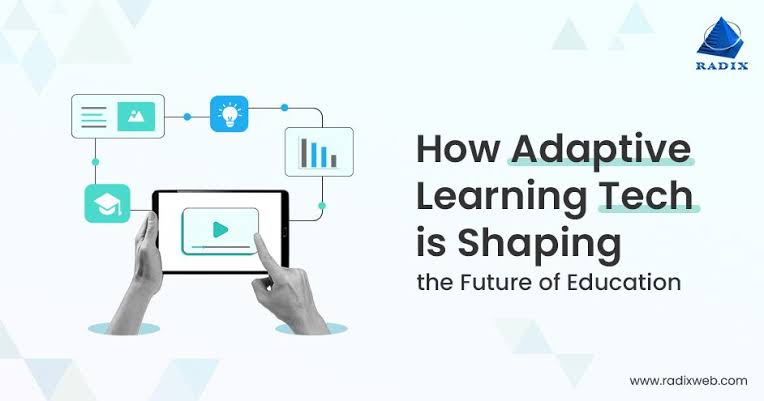
Key Takeaways:
- Understanding the pivotal role of virtual learning APIs in contemporary education.
- Exploring the various benefits of APIs to students, educators, and schools.
- Discussing scalability, data security, and community enhancement through API integration.
Virtual learning APIs are revolutionizing modern education by providing personalized learning experiences. These tools adapt to individual learners through AI and machine learning, enhancing engagement and knowledge retention. The future of education lies in the dynamic and interactive environments created by these innovative technologies.
Introduction
Due to the digital revolution, our lives have changed significantly, and education is no different. Introduced technology in the educational sector has brought about a paradigm change, with virtual learning API at the forefront of this change. These APIs (Application Programming Interfaces) pave the way toward innovative, flexible, and inclusive learning environments that accommodate a broad spectrum of learners’ needs and preferences. By facilitating real-time communication and sharing multimedia resources, virtual learning APIs are indeed nurturing the future of education.
Understanding Virtual Learning APIs
An API is the hidden conductor behind the scenes, enabling software applications to communicate effectively. Virtual learning APIs specialize in educational technology to enhance online educational platforms, providing functionalities such as video conferencing, interactive messaging, and the seamless distribution of course material. For instance, when students attend a live-streamed lecture, the API transmits audio and video feeds smoothly.
Such APIs not only support the technical aspects of virtual classrooms but also facilitate an ecosystem where resources can be easily managed and personalized. They serve as an indispensable element in creating dynamic and responsive educational platforms that can accommodate the diverse learning methods of students worldwide.
Enhancing Accessibility and Connectivity
One of the most pronounced benefits of virtual learning APIs is the promotion of educational equity. They act as enablers, allowing educational resources to be accessible from any location and time, thus breaking down the barriers posed by distance and time zones. This democratization of education has provided students in remote or underserved areas with the same quality of education available in more affluent locales.
Additionally, virtual learning APIs empower individuals with disabilities by providing them with the tools necessary to engage in learning environments that can be adjusted to their needs. The connectivity these APIs foster creates a flexible and inclusive educational framework and ushers in a new global knowledge-sharing era.
The Impact on Educators
Virtual learning APIs have a transformative effect on how educators approach teaching. They are altering the traditional pedagogical model by offering various tools that enhance lesson planning, deliver content, and facilitate interactive discussions. The API effectively becomes a platform for innovation where educators are empowered to create compelling and meaningful educational experiences.
From simplifying administrative tasks to enabling real-time feedback loops between students and educators, APIs provide a wealth of possibilities that enhance the teaching process. For educators, this translates into more time and energy devoted to the core aspects of their profession — tutoring, mentoring, and inspiring students to achieve their educational goals.
Personalization of Education
Thanks to APIs, personalized attention that was once a feature of small classrooms can now be replicated in the virtual environment. Leveraging data analytics and machine learning, virtual learning APIs enable platforms to adapt coursework to suit individual learning styles and paces. This means a student struggling with a particular concept can receive additional resources automatically or be suggested alternative methods of learning that may be more effective for them.
Conversely, excelling students can be challenged with advanced content or additional projects, ensuring their educational momentum is continuously fostered. This level of customization is essential for creating an engaging learning experience that caters to each student’s unique educational journey.
The Student Experience
The immersive nature of today’s virtual classrooms owes a great deal to APIs’ capabilities. Interactive features such as virtual hands-up, breakout rooms, and peer-to-peer collaboration tools create an engaging and collaborative learning environment that mimics in-person interactions. By providing a platform for students to express themselves and interact with their peers, virtual learning APIs enrich the overall educational experience.
Moreover, these APIs help to maintain a high level of student motivation and commitment to learning by offering rewards, badges, and certificates for course completion or achievements. By tapping into the potential of gamification, APIs can transform learning into a more enjoyable and fulfilling pursuit.
Scalability Considerations
One crucial aspect of virtual learning APIs is their scalability. As educational institutions aim to extend their online offerings, APIs are essential to handling the increased load of new users and maintaining the quality of service. This means a school, university, or online course provider can grow its student base without encountering major disruptions or declines in the learning experience.
Despite the advantages, scaling up presents challenges, most notably maintaining platform performance under heavy user access and ensuring the availability of support resources. Virtual learning APIs are engineered to withstand scaling pressures, providing reliable and consistent functionality as the user base expands.
Data Security and Privacy
The shift towards virtual learning platforms also brings critical data security and privacy issues. APIs facilitate the flow of sensitive information between platforms, so they must incorporate stringent security measures to prevent unauthorized access and data breaches. Secure authentication protocols, data encryption, and regular security audits are standard practices that strengthen the security posture of these APIs.
Homework assignments, test scores, and personal student information must be protected with the utmost care. By adhering to high security and privacy standards, virtual learning APIs ensure that students and educators can engage with educational material with peace of mind, knowing that their data is secure.
The Role of Community in Virtual Learning
Building a thriving online educational community is another facet of virtual learning APIs. These platforms allow for the creation of study groups, forums, and discussion boards, which act as virtual spaces for students to interact, support one another, and build meaningful relationships. A robust community is central to the success of any learning environment as it stimulates discussion, idea exchange, and collaborative learning.
APIs lay the groundwork for these communities by enabling social features that foster interaction and engagement, cultivating a vibrant educational ecosystem. Students are more likely to thrive and persist in their studies when they feel they are part of a supportive community.
Looking Towards the Future
As we look towards the future, the horizon for virtual learning APIs is expanding, with emerging technologies extending their capabilities even further.
Advancements in artificial intelligence and machine learning technology allow for personalized learning pathways that adjust to the unique progress of every learner. Additionally, augmented and virtual reality can enhance online learning experiences, offering greater immersion and dynamism. For educational institutions and educators, staying current with these advancements is not just about keeping up with technology trends but about understanding how they can be harnessed to improve the accessibility, engagement, and effectiveness of education. Those who draw on the powerful features of emerging APIs will help shape an educational future that is personal, accessible, and inclusive.
Concluding Thoughts
Virtual learning APIs stand at the crossroads of technology and education, offering myriad solutions to enhance learning experiences. They play an integral role in crafting modern, agile, and accessible educational environments that cater to a broad audience. By elevating accessibility, fostering personalization, and ensuring scalability, APIs possess the transformative ability to push the boundaries of traditional education and drive the industry forward. Integrating robust and innovative virtual learning APIs is, thus, foundational in shaping an evolved, adaptive, secure, and poised educational landscape for the future.
This resource from Education Week offers further insights into how technology is being integrated into education. Additionally, the informed perspectives on the impact of data and technology in educational settings should be considered.


